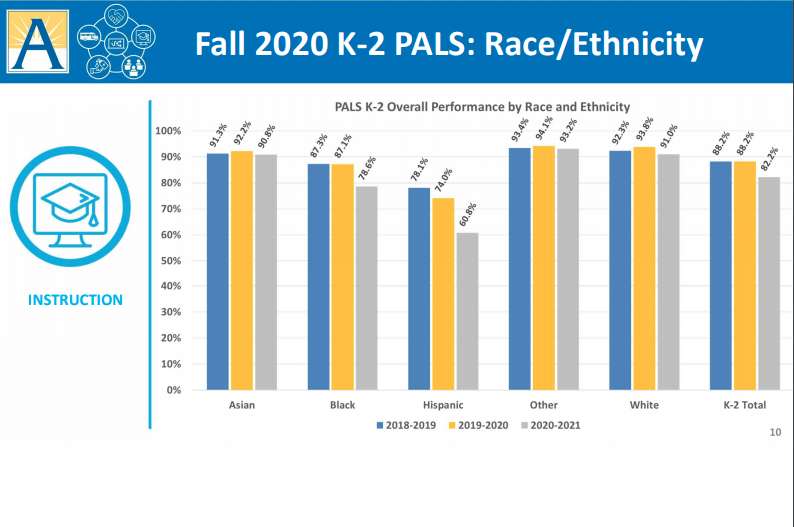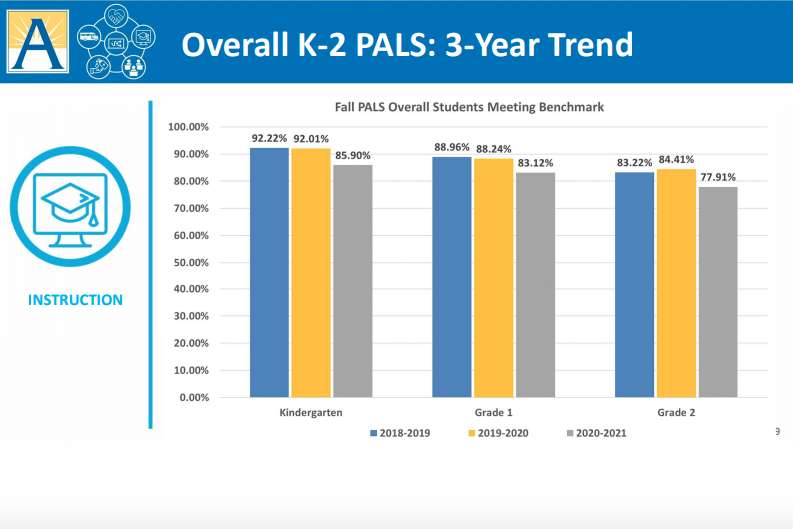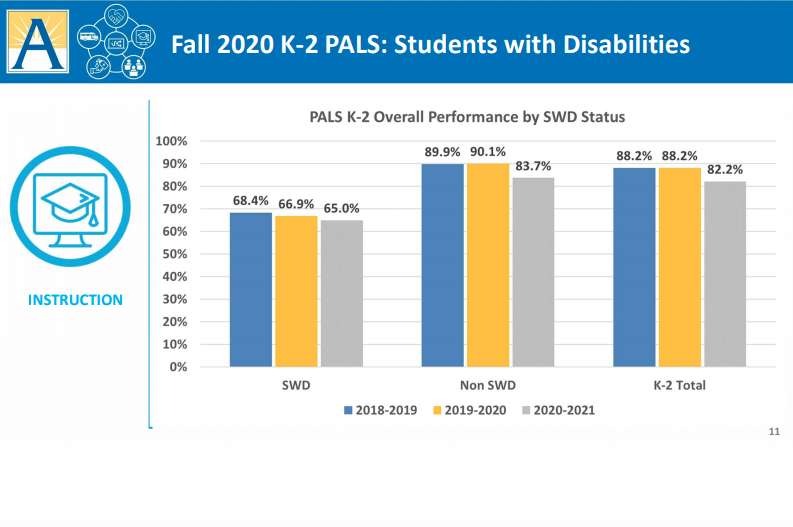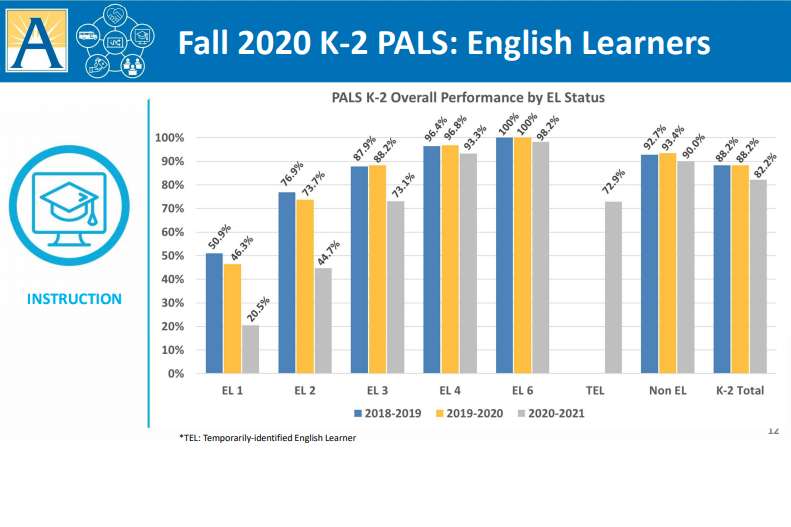Fewer K-2 students in Arlington Public Schools, particularly English learners and Black and Hispanic children, are meeting literacy benchmarks this fall, according to new data.
All APS elementary schools recently completed the Phonological Awareness Literacy Screening (PALS) diagnostic, provided by the Commonwealth of Virginia, for kindergarteners and first- and second-graders. The statewide system uses the screener to gauge whether students are grasping the foundations of reading.
“It is evident that we’re continuing on a downward trend with some of the PALS results,” Superintendent Francisco Durán said during the School Board meeting on Thursday night. “That downward concern is a concern for us.”
Black and Hispanic students dropped off the most during remote learning, while students with disabilities continue to perform far below neurotypical children and the overall student population.
He said “one of the most alarming bits of data” is among English language learners at the lowest levels. Less than half of students at the most basic level who met benchmarks last year met them this year.
This partially contributes to the drop among Hispanic students overall, and explains why English-language learners are prioritized for returning to school, he said.
Older English-language learners, however, buck these trends, with some outperforming native English speakers, he said.
Durán said APS’s problem extends down to core instruction, and to reverse this, schools need to incorporate daily literacy activities and small group sessions.
“We must continue to tighten — whether it’s in-person, hybrid or distance learning — differentiated instruction to small groups,” he said. “Whole class instruction will not meet the needs of all students.”
More teachers are being trained in how to do this, but Durán said teachers need more resources.
“I want to be a broken record: Small group instruction that focuses specifically on development has got to be the key here as we build out foundational literacy skills,” he said.
Former school board candidate Symone Walker welcomed his call for changes to reading instruction.
“They’re finally talking about this,” she said. “We’ve done a lot of advocacy for it, and I’m thrilled.”
COVID-19 exacerbates a problem that has persisted for years, one she said is partially rooted in inconsistent methods of teaching literacy.
This hits close to home for Walker, whose son has dyslexia. She pays a reading therapist to teach Wilson Fundations, a program recognized for helping dyslexic children, which is used in a few APS schools but not his.
“That’s the definition of inequity right there,” she said.
Fairfax County Public Schools made national headlines last week when it revealed a significant drop in academic performance, particularly among the most vulnerable students, during remote learning. Arlington Public Schools has released other preliminary grades data, but is planning a more comprehensive grades report, to be released later this month.
Charts via Arlington Public Schools





